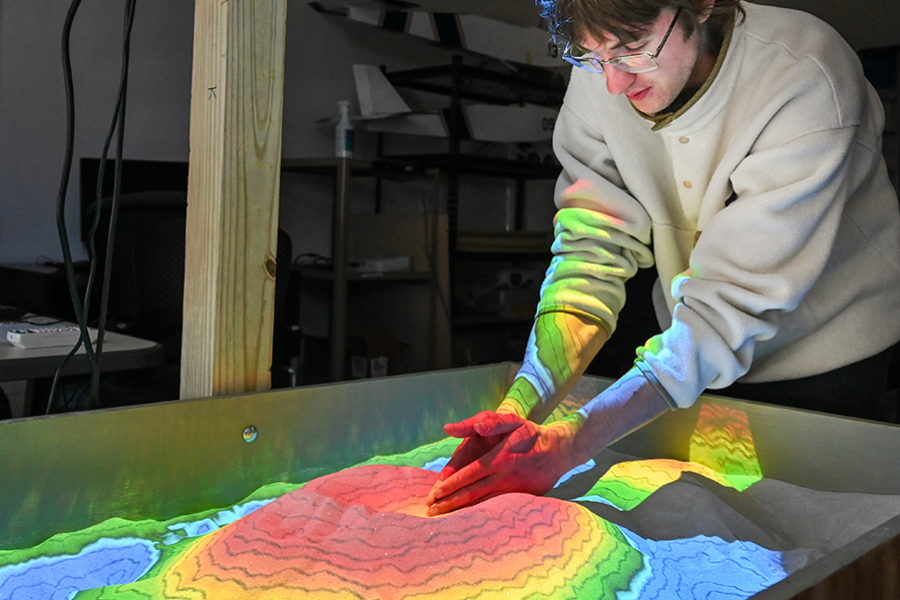Electrical Engineering

The Ever-Changing Business of Electrical Engineering
in the UTC College of Engineering and Computer Science
Contact Information
For general information, please contact:
Mandy McWeeney - Administrative Associate
Email: [email protected]
Phone: (423) 425-4396
For program information, please contact:
Dr. Abdul R. Ofoli
Department Head of Electrical Engineering
E-Mail: [email protected]
Phone: (423) 425-5754
Electrical Engineering
UTC College of Engineering and Computer Science
ECS 331, Dept 2342
615 McCallie Avenue
Chattanooga, TN 37403
Dept. Phone: (423) 425-4396
Where Do I Begin?
Undergraduate Programs
- Electrical Engineering, B.S.E.E. - Learn more ⇾
- JUMP - Electrical Engineering Degree - Learn more ⇾
- Minor in Electrical Engineering - Learn more ⇾
Graduate Programs
UTC's College of Engineering and Computer Science has one graduate electrical engineering program and four graduate engineering certificates available:
Graduate Engineering Certificates

What types of jobs do electrical engineers do?
Power Systems Engineer
Control Systems Engineer
Electronics Design Engineer
Hardware Engineer
Embedded Systems Engineer
Signal Processing Engineer
Renewable Energy Engineer
Grid Modernization Specialist
Robotics Engineer
Electrical Systems Engineer
Avionics Engineer
EV Powertrain Engineer
Job Pay and Outlook
The median annual wage for electrical engineering occupations was $117,680 with employment projected to grow by 5% from 2022 to 2032.

Research Opportunities
At UTC, research opportunities in electrical engineering span a wide range of cutting-edge and foundational topics. These are typically hosted by faculty-led labs, sponsored by grants (e.g., NSF, DOE), or integrated into undergraduate/graduate programs. Common research areas you can explore: Power and Energy Systems, Control Systems and Robotics, Signal Processing and Communications, and Electromagnetics and Photonics among many other disciplines.